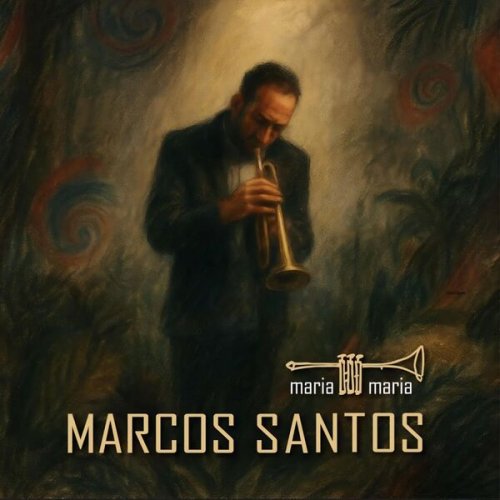Christoph von Dohnányi, The Cleveland Orchestra - Wagner: Die Walküre (1997)
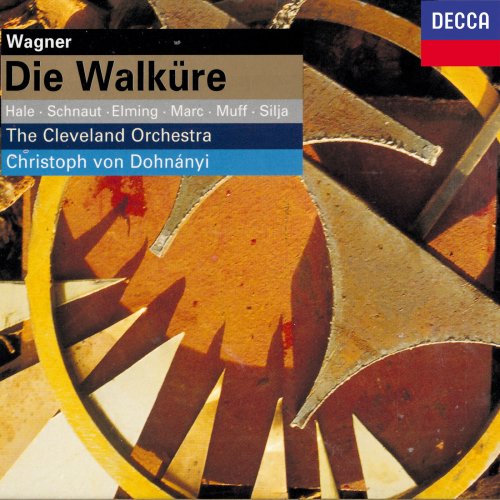
Artist: Christoph von Dohnányi, The Cleveland Orchestra
Title: Wagner: Die Walküre
Year Of Release: 1997
Label: Decca
Genre: Classical, Opera
Quality: FLAC (tracks)
Total Time: 03:44:45
Total Size: 1 Gb
WebSite: Album Preview
Tracklist:Title: Wagner: Die Walküre
Year Of Release: 1997
Label: Decca
Genre: Classical, Opera
Quality: FLAC (tracks)
Total Time: 03:44:45
Total Size: 1 Gb
WebSite: Album Preview
Die Walküre, WWV 86B / Act 1 (Richard Wagner)
1. Orchestervorspiel 03:51
2. Szene 1: "Wes Herd dies auch sei, hier muß ich rasten" 04:04
3. "Kühlende Labung gab mir der Quell" 07:54
4. Szene 2: "Müd am Herd fand ich den Mann"Christoph von Dohnányi 05:35
5. "Friedmund darf ich nicht heißen" 04:05
6. "Aus dem Wald trieb es mich fort" 05:49
7. "Ich weiß ein wildes Geschlecht" 06:05
8. Szene 3: "Ein Schwert verhieß mir der Vater" 05:38
9. "Schläfst du, Gast?...Der Männer Sippe saß hier" 06:23
10. "Winterstürme wichen dem Wonnemond" 02:56
11. "Du bist der Lenz" 06:53
12. "Wehwalt heißt du fürwahr?" 05:10
Die Walküre, WWV 86B / Act 2 (Richard Wagner)
13. VorspielThe Cleveland Orchestra 02:08
14. "Nun zäume dein Ross, reisige Maid"The Cleveland Orchestra 02:28
15. "Der alte Sturm, die alte Müh'"The Cleveland Orchestra 04:32
16. "So ist es denn aus mit den ewigen Göttern"Anja Silja 03:02
17. "Nichts lerntest du"Robert Hale 05:46
18. "Was verlangst du?"The Cleveland Orchestra 05:13
19. Szene 2: "Schlimm, fürcht ich, schloß der Streit"Gabriele Schnaut 04:48
20. "Was keinem in Worten ich künde" 06:26
21. "Ein andres ist 's: achte es wohl" 10:51
22. "O sag, künde, was soll nun dein Kind?...So sah ich" 07:19
23. Szene 3: "Raste nun hier; gönne dir Ruh!" 03:24
24. "Hinweg! Hinweg! Flieh die Entweihte!" 07:53
25. Szene 4: "Siegmund! Sieh auf mich!" 07:21
26. "Hehr bist du, und heilig" 05:51
27. "So wenig achtest du ewige Wonne?" 05:33
28. Szene 5: "Zauberfest bezähmt ein Schlaf" 03:06
29. "Kehrte der Vater nur heim" 05:37
Die Walküre, WWV 86B / Act 3 (Richard Wagner)
30. Vorspiel..."Hojotoho! Hojotoho!" (Ride of the Valkyries)Karin Goltz 07:48
31. "Schützt mich und helft in höchster Not"Gabriele Schnaut 03:15
32. "Nicht sehre dich Sorge um mich" 05:12
33. "Steh, Brünnhild'!" 00:52
34. Szene 2: "Wo ist Brünnhild', wo die Verbrecherin?" 04:41
35. "Hier bin ich, Vater" 03:40
36. "Wehe! Weh! Schwester, ach Schwester!"Karin Goltz 04:54
37. Szene 3: "War es so schmählich?" 05:04
38. "Nicht weise bin ich, doch wusst' ich das eine" 04:58
39. "So tatest du, was so gern...Deinen leichten Sinn" 06:50
40. "Du zeugtest ein edles Geschlecht" 05:54
41. "Leb wohl, du kühnes, herrliches Kind" 02:11
42. "Denn einer nur freie die Braut" 08:34
43. "Loge, hör! Lausche hieher!" 05:11
Performers:
Poul Elming (Siegmund), Alessandra Marc (Sieglinde), Alfred Muff (Hunding), Gabriele Schnaut (Brünhilde), Robert Hale (Wotan), Anja Silja (Fricka), Michele Crider (Gerhilde), Susan Marie Pierson (Ortlinde), Karin Goltz (Waltraute), Penelope Walker (Schwertleite), Ruth Falcon (Helmwige), Katherine Ciesinski (Siegrune), Sandra Walker (Grimgerde), Susan Shafer (Roßweiße)
The Cleveland Orchestra
Christoph von Dohnanyi
This is a grand, satisfying performance on almost every count. Its stature allows me for the moment to put aside the baggage of all earlier recordings and assess it on its own merits alone. In the first place, following on his successful Rheingold (Decca, 11/95), Dohnanyi conducts a well-paced, thought-through reading that at once creates dramatic excitement and attends to the longer view. From the opening storm right through to the Magic Fire Music there’s a welcome sense of forward movement everywhere, except in the middle of Act 2 where in places Dohnanyi slows down inordinately, allowing the score to become momentarily becalmed.
Otherwise we sense the inner pleasures and anxieties of each character in turn: Siegmund’s extended defiance, Sieglinde’s ecstasy in Act 1, even more her spiritual desperation in Act 2 and final elevation when she knows she is pregnant, Wotan’s misery, fury, love, Brunnhilde’s missionary zeal in Act 2, her remorse in Act 3. In brief the conductor persuades singers and players alike to give us the essence of the work. One can hardly ask for more, apart from a level of excellence in execution on both sides. Neither orchestra nor cast disappoints, the players responding with a fiery, expertly played and vital performance.
In Act 1 we encounter the warm, dark-grained Sieglinde of Alessandra Marc, whose slightly covered, expressive tone and phrasing recall that of Rysanek in the part. Poul Elming, who sang Siegmund on the most recent version conducted by Barenboim, recorded in 1992 only months before this one, is again almost ideal in the part, his tone pleasing with that slightly metallic touch common in Scandinavian singers, especially tenors, his reading sung eagerly off the words. Note, for example, his stunned surprise when the sword is lit up and his purposeful defiance of Brunnhilde in the announcement of the Death scene, and when pure lyricism is called for, as in the “Wintersturme”, he isn’t found wanting. His antagonist, Hunding, is sung with astonishing immediacy and biting venom by Alfred Muff, every syllable made to tell.
In Act 2 we meet at once Gabriele Schnaut’s very positive Brunnhilde. Bright and forceful in her war cry, she shows suitable concern at her father’s distress, is wise and dignified in her colloquy with Siegmund, the phrase starting “So wenig achtest du” as inward as it should be. In Act 3 her appeal to Wotan “War es so schmahlich?” is lovingly projected with more than a touch of Varnay in her voice, praise enough. Even better is the phrase later in the scene, “zu lieben, was du geliebt”, where Schnaut’s basically bright tone takes on a softer timbre. It may be thought that it sometimes suffers from an uncomfortable edge, but I find that tolerable in the context of – at last – a voice fit in heft and body for the part as a whole.
Robert Hale’s Wotan is a more familiar quantity, but none the less welcome for that. With a voice properly poised for the part between baritone and bass, he has no difficulty with either his high or low notes, can sing a true line, as he proves throughout, and is fully conversant with every facet of Wotan’s dilemma, which is authoritatively laid before us in the long Act 2 Narration, where Wotan’s divesting of his divinity goes to the heart. He is no less successful in trying to defy Fricka or in thundering against his errant daughter. You may find the ultimate in psychological insight missing, but most of the interior anguish of the part is there, impeccably delivered.
As his Fricka, Anja Silja gives a typically intelligent, keenly articulated performance even if once or twice one notices the vocal effort involved. The Walkyries are on the whole good, but a couple of harsh sopranos do curdle the mixture in the ensemble passages.
The recording, including a few unobtrusive sound effects, is large in scale. My only reservations concern the fact that the voices sometimes sound on a different level, in a different acoustic from the orchestra (but the fault is minor) and the fact that you need a magnifying glass to read the minute print used for text and translations.
For once I turned reluctantly to comparisons. Haitink’s sound, middle-of-the-road reading sounds a shade undramatic beside Dohnanyi’s, and I don’t think his singers, taken all round, are as convincing as those on the new set, although Studer’s Sieglinde is more evenly and beautifully sung than Marc’s. Barenboim’s reading, made live at Bayreuth, is possibly more metaphysical than Dohnanyi’s and it enjoys a more natural recording in the Bayreuth acoustic. Vocally, like the Haitink, it yields to the new set. Of course several older and/or historic sets offer special perspectives but, in terms of modern reproduction, are not in the league of the new Decca. If you have any of these, or indeed, the famous Decca/Solti, with Nilsson, Hotter et al, you probably need not consider another purchase, but newcomers should probably choose this version over recent counterparts.'
Otherwise we sense the inner pleasures and anxieties of each character in turn: Siegmund’s extended defiance, Sieglinde’s ecstasy in Act 1, even more her spiritual desperation in Act 2 and final elevation when she knows she is pregnant, Wotan’s misery, fury, love, Brunnhilde’s missionary zeal in Act 2, her remorse in Act 3. In brief the conductor persuades singers and players alike to give us the essence of the work. One can hardly ask for more, apart from a level of excellence in execution on both sides. Neither orchestra nor cast disappoints, the players responding with a fiery, expertly played and vital performance.
In Act 1 we encounter the warm, dark-grained Sieglinde of Alessandra Marc, whose slightly covered, expressive tone and phrasing recall that of Rysanek in the part. Poul Elming, who sang Siegmund on the most recent version conducted by Barenboim, recorded in 1992 only months before this one, is again almost ideal in the part, his tone pleasing with that slightly metallic touch common in Scandinavian singers, especially tenors, his reading sung eagerly off the words. Note, for example, his stunned surprise when the sword is lit up and his purposeful defiance of Brunnhilde in the announcement of the Death scene, and when pure lyricism is called for, as in the “Wintersturme”, he isn’t found wanting. His antagonist, Hunding, is sung with astonishing immediacy and biting venom by Alfred Muff, every syllable made to tell.
In Act 2 we meet at once Gabriele Schnaut’s very positive Brunnhilde. Bright and forceful in her war cry, she shows suitable concern at her father’s distress, is wise and dignified in her colloquy with Siegmund, the phrase starting “So wenig achtest du” as inward as it should be. In Act 3 her appeal to Wotan “War es so schmahlich?” is lovingly projected with more than a touch of Varnay in her voice, praise enough. Even better is the phrase later in the scene, “zu lieben, was du geliebt”, where Schnaut’s basically bright tone takes on a softer timbre. It may be thought that it sometimes suffers from an uncomfortable edge, but I find that tolerable in the context of – at last – a voice fit in heft and body for the part as a whole.
Robert Hale’s Wotan is a more familiar quantity, but none the less welcome for that. With a voice properly poised for the part between baritone and bass, he has no difficulty with either his high or low notes, can sing a true line, as he proves throughout, and is fully conversant with every facet of Wotan’s dilemma, which is authoritatively laid before us in the long Act 2 Narration, where Wotan’s divesting of his divinity goes to the heart. He is no less successful in trying to defy Fricka or in thundering against his errant daughter. You may find the ultimate in psychological insight missing, but most of the interior anguish of the part is there, impeccably delivered.
As his Fricka, Anja Silja gives a typically intelligent, keenly articulated performance even if once or twice one notices the vocal effort involved. The Walkyries are on the whole good, but a couple of harsh sopranos do curdle the mixture in the ensemble passages.
The recording, including a few unobtrusive sound effects, is large in scale. My only reservations concern the fact that the voices sometimes sound on a different level, in a different acoustic from the orchestra (but the fault is minor) and the fact that you need a magnifying glass to read the minute print used for text and translations.
For once I turned reluctantly to comparisons. Haitink’s sound, middle-of-the-road reading sounds a shade undramatic beside Dohnanyi’s, and I don’t think his singers, taken all round, are as convincing as those on the new set, although Studer’s Sieglinde is more evenly and beautifully sung than Marc’s. Barenboim’s reading, made live at Bayreuth, is possibly more metaphysical than Dohnanyi’s and it enjoys a more natural recording in the Bayreuth acoustic. Vocally, like the Haitink, it yields to the new set. Of course several older and/or historic sets offer special perspectives but, in terms of modern reproduction, are not in the league of the new Decca. If you have any of these, or indeed, the famous Decca/Solti, with Nilsson, Hotter et al, you probably need not consider another purchase, but newcomers should probably choose this version over recent counterparts.'
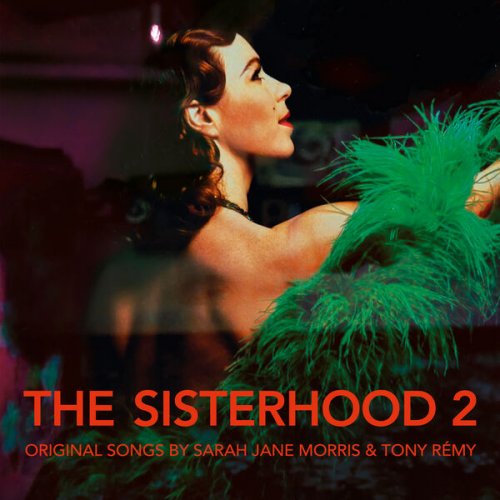
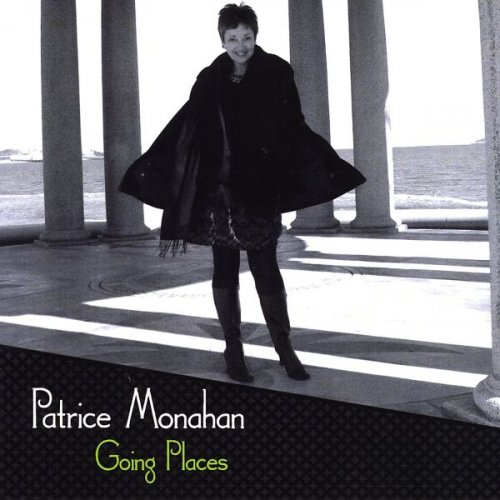
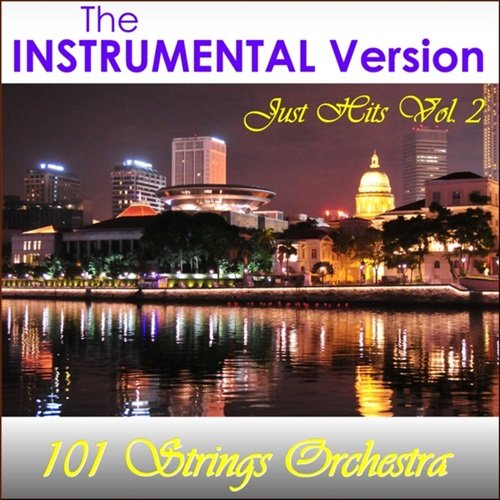
![Mosaic - Unfolding Tiles (2026) [Hi-Res] Mosaic - Unfolding Tiles (2026) [Hi-Res]](https://img.israbox.com/img/2026-03/05/9gt7lxt43bibxrmfl6nca8miy.jpg)
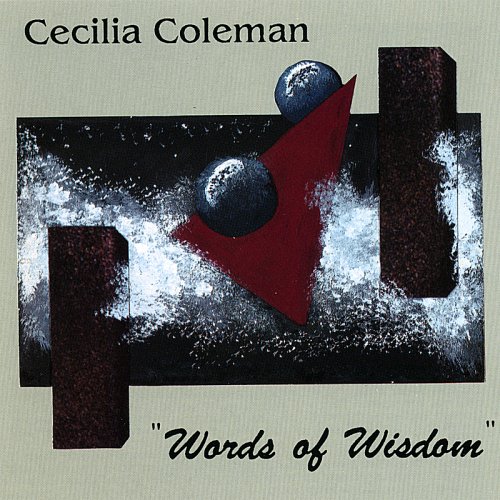
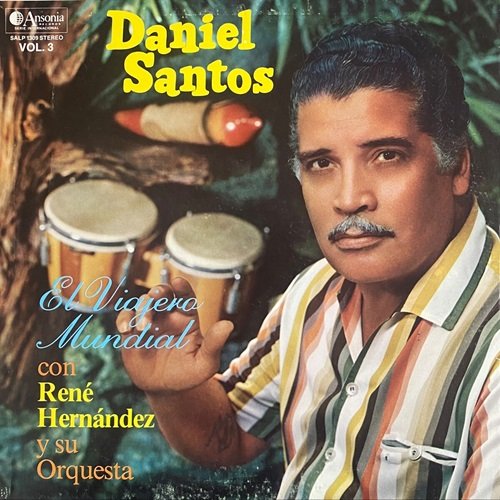
![Thomas Bergsten Trio - Chill Microtonal Free Jazz and Modern Composition To Study To (2026) [Hi-Res] Thomas Bergsten Trio - Chill Microtonal Free Jazz and Modern Composition To Study To (2026) [Hi-Res]](https://www.dibpic.com/uploads/posts/2026-03/1772434983_p1cagvb6yegof_600.jpg)
![Ying-Da Chen - Live Without Irony (2026) [Hi-Res] Ying-Da Chen - Live Without Irony (2026) [Hi-Res]](https://www.dibpic.com/uploads/posts/2026-03/1772674542_yb18hmxl31g8p_600.jpg)
